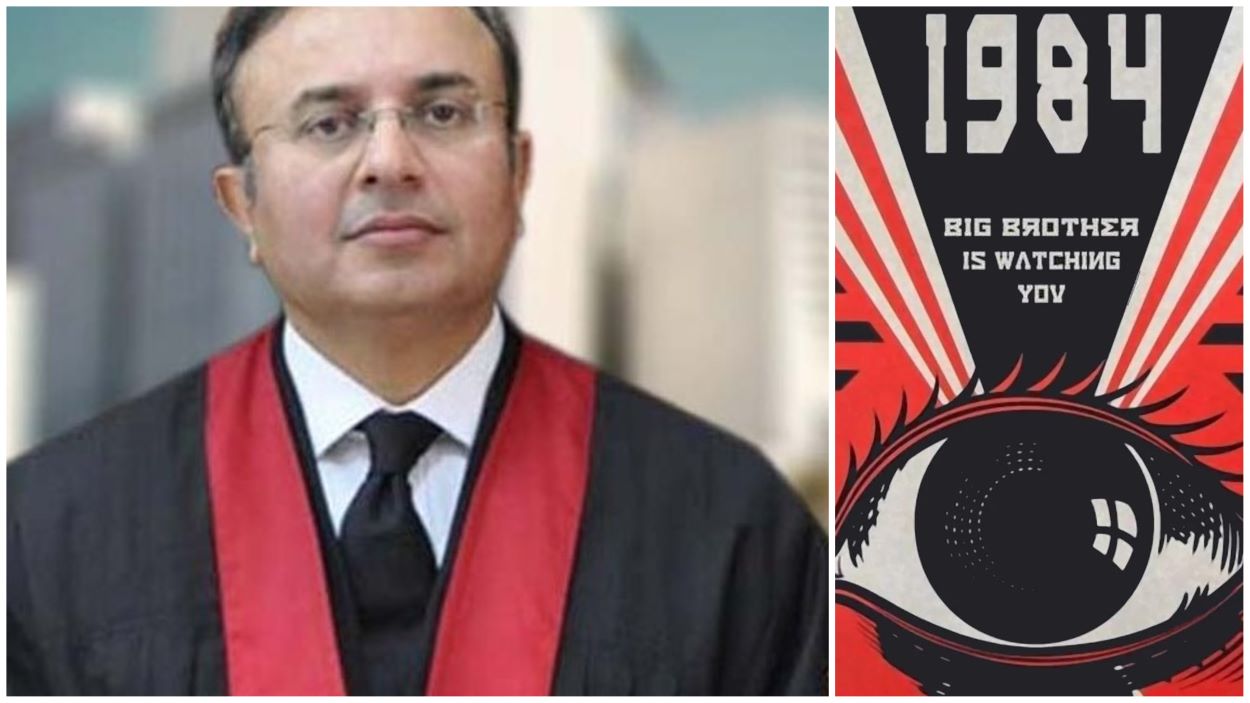Justice Mansoor Ali Shah referenced the phrase ‘Big Brother is Watching You’ from George Orwell’s dystopian novel “1984” to highlight the invasive surveillance culture typical of certain authoritarian regimes.
Shah’s citation of the iconic concept emphasised the extent to which such governments monitor and control their citizens, a central theme of Orwell’s cautionary tale. Justice Shah used this reference to critically address the implications of constant surveillance on personal freedoms and societal dynamics under authoritarian rule.
In a pointed critique, Justice Shah posed a rhetorical question about the operation of a state that perpetually monitors its citizens, inducing a pervasive atmosphere of fear where individuals are constantly watched, heard, and recorded. “Is this how a state should be run?” he questioned, challenging the justification of such intrusive governance.
George Orwell, a seminal British author known for his acute social commentary, was deeply influenced by his experiences during the Spanish Civil War from 1936 to 1939. His profound observations of political dynamics are encapsulated in his works “Animal Farm” (1945) and “1984” (1949). “1984,” in particular, elaborates on Orwell’s wartime experiences, portraying a society where a single-party state exercises absolute control over its citizens, stripping them of independent thought and mandating absolute conformity.
The novel famously features posters of Big Brother throughout London bearing the slogan “Big Brother is watching you,” symbolizing the government’s invasive surveillance practices. The plot revolves around the main characters who challenge the party’s strict policies and face dire repercussions.
“Animal Farm,” another critically acclaimed work by Orwell, explores the corrupting influence of power through the allegory of farm animals who overthrow their human owner only to replicate the tyranny they despised. Despite the general scarcity of food, the ruling pigs hoard luxuries for themselves, demonstrating Orwell’s critique of hypocritical governance.
Orwell’s depiction of politicians as jungle monkeys who disrupt or devour crops despite communal needs underscores his cynicism towards political leaders. His literary contributions, particularly “1984,” have been banned in several nations, including Russia, for their incisive critique of totalitarian regimes and enduring relevance to global political discourse.






